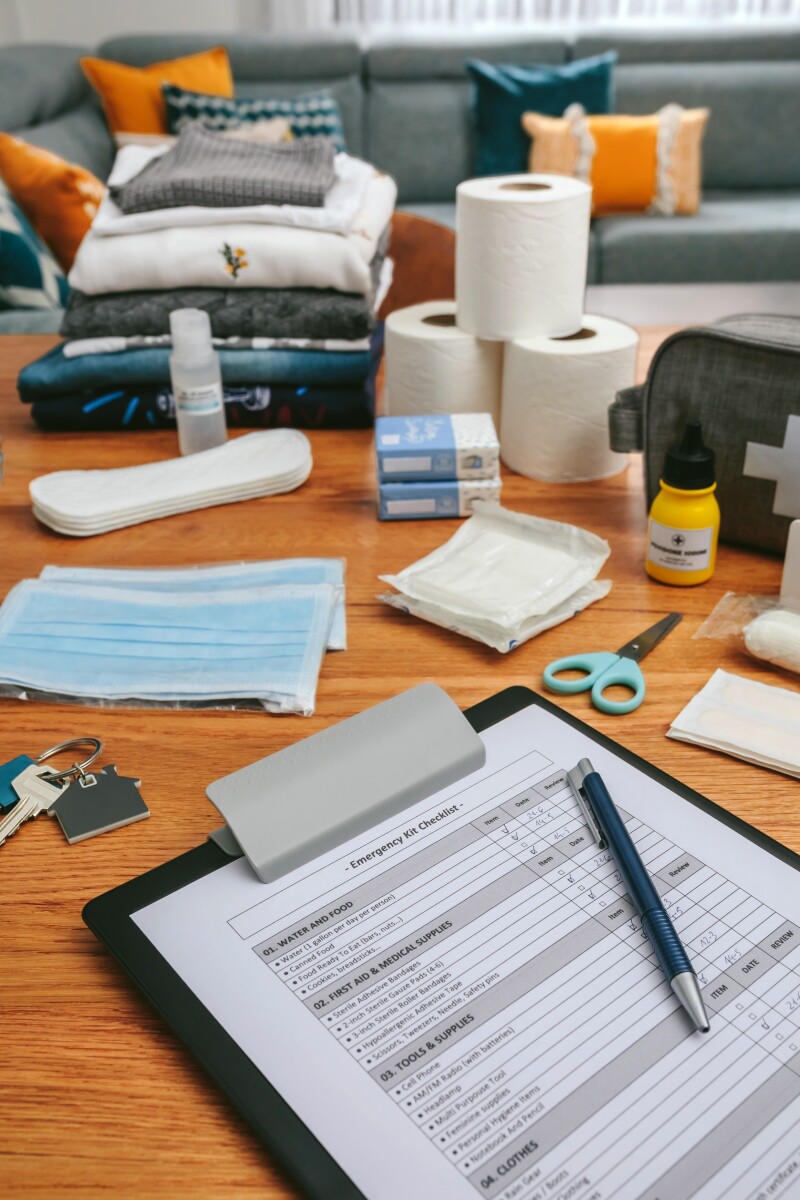
Food, water, clothing, and medical supplies all qualify as important and obvious items to include in a 72-hour kit, but it can feel overwhelming to try to prepare for everything and consider every possibility. But sometimes a little extra preparation can go a long way.
For example, you may still have clean or unused N95 masks lying around. Add them to your emergency kits! In the case of fire or serious debris situations, masks can filter particulates that are harmful to breathe in.
According to Melanie of Plan for Awesome, “During the Camp Fire in Paradise, CA [in 2018], these masks were sold out for hundreds of miles. Amazon was sold out. Everywhere was sold out. We weren’t anywhere near Paradise, but we should have been wearing these every time we went outside for a couple of the really bad days. Moral of the story: once you realize you need these, it might be too late to get them.”
My own family had N95 masks already packed in our emergency kits years before the COVID-19 pandemic hit, and they proved immensely helpful when we needed to wear more heavy-duty masks out in public but couldn’t find any readily available.
You will never be able to fit everything you might need in an emergency into a set of family backpacks, but here are a few small, easy items that are a little more out-of-the-box but could make an enormous difference in an emergency situation.
► You may also like: What’s the Church’s current recommendation on food storage?
- Cash—include small bills or quarters for vending machines as well as larger bills in case power is out and ATM machines aren’t working.
- Cell phone chargers—make sure you update these as you get new phones, and consider including portable charging banks as well in case the power goes out.
- Small screwdrivers to open battery compartments for walkie-talkies, lanterns, and so on.
- Scissors—emergency gear sometimes comes in inconvenient packaging that can be hard to open.
- A corded phone—if cell towers go down, a corded phone can be plugged into any wall outlet.
- Paper maps of your local area. If familiar roads are closed or cell towers go out, your phone’s GPS might not be helpful.
- Emergency info card for each member of the family with their name, parents’ or spouse’s contact info, and any medical conditions or allergies.
- Photocopies of important IDs like drivers licenses, passports, Social Security cards, military IDs, and so on.
- Pictures of each family member in case you get separated—laminated is great, or at least in a ziploc bag.
- Back up glasses and contacts and saline solution for any family members who wear them.
- Fun items like card games, crayons, dice, candy—especially helpful if you have young kids
- A “grab list” of items around your house that you would need to grab during the process of evacuation or displacement. Think of items that you don’t want to keep in your pre-packed 72-hour kits, like extra bedding, water, laptops, medications, and important documents.
- Pet supplies like food and a collapsible water bowl for any four-legged family members
► You may also like: 8 emergency preparedness items to bring you peace of mind

